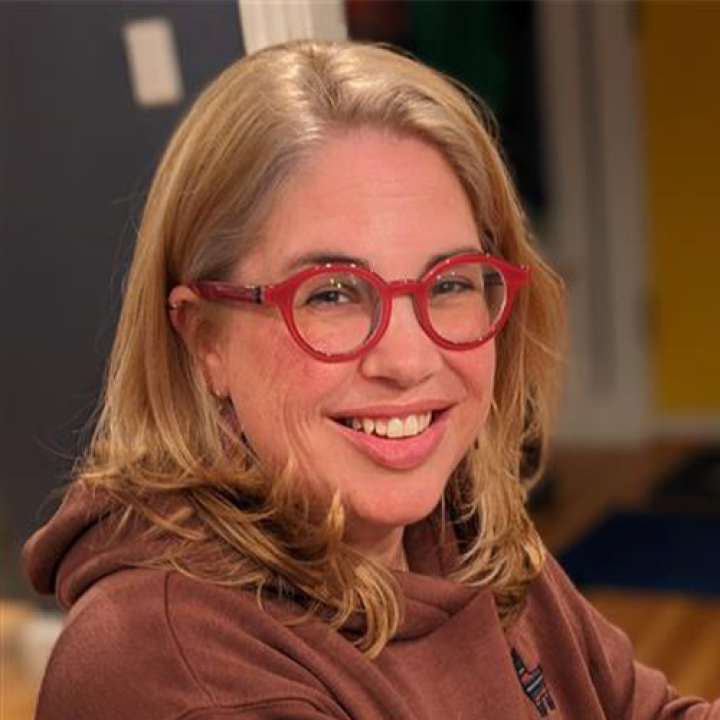“The academic study of religion cannot be removed from life.” That’s how Dr. Diane Moore, associate dean for religion and public life at Harvard’s Divinity School, opened the 12th annual Global Studies Outreach workshop for educators. The workshop — a foundational part of the Davis Center’s outreach to middle school, high school, and community college educators — was devoted to understanding religious nationalism as a global phenomenon. While the event always involves several of Harvard’s international centers, this year’s topic made a partnership with HDS’s Religion and Public Life especially valuable.
Thirty-five teachers from 12 U.S. states and Puerto Rico spent four days on campus in early August, acting first and foremost as learners and secondarily as educators, considering ways to bring new content to their classrooms and students. Workshop participants were introduced to RPL’s pedagogical foundations, or “habits of mind,” which include:
1. Religions are internally diverse as opposed to uniform;
2. Religions evolve and change over time as opposed to being ahistorical and static;
3. Religious influences are embedded in all dimensions of culture as opposed to the assumption that religions function in discrete, isolated, “private” contexts.
Participants had multiple opportunities to consider these habits of mind through the exploration of global case studies, including Israel/Palestine, Turkey, Sudan, Brazil, Myanmar, China, and Ukraine.
Dr. Catherine Wanner, professor of history, anthropology, and religious studies at Penn State’s School of International Affairs, presented the Ukrainian case study, focusing on the religious proxy war unfolding amid Russia’s military aggression against Ukraine. She argued that Russia’s current war is rooted in a belief that Russians and Ukrainians are one people and that they should therefore be part of a single church. This idea somewhat reflects the structure of Orthodox Churches in the region. Greece, Bulgaria, Romania, and other countries with predominantly Orthodox populations have “autocephalous,” or ecclesiastically independent, Orthodox churches that serve a particular nation. In contrast, the Orthodox communities in Ukraine and Belarus, Dr. Wanner said, have historically fallen under the jurisdiction of the Russian Orthodox Church and the leadership of the Moscow Patriarchate. In October 2018, four years after Russia’s annexation of Crimea and the onset of war in eastern Ukraine, Ecumenical Patriarch Bartholomew I of Constantinople annulled an edict from 1686 that had transferred the Metropolitanate of Kyiv from Constantinople to Moscow. With this decision, for the first time in over 300 years, the Ecumenical Patriarchate — the honorary “first among equals” of Eastern Orthodoxy — recognized a religious authority in Ukraine independent of Moscow, which paved the way for the creation of a new Orthodox Church of Ukraine.
This transition did not mean that Moscow’s oversight of Orthodox Christian life and practice in Ukraine was eliminated. Instead, there are two Orthodox hierarchies operating in Ukraine, Dr. Wanner explained — the Ukrainian Orthodox Church (Moscow Patriarchate) and the Orthodox Church of Ukraine (Kyiv Patriarchate). Ukraine is the first predominantly Orthodox country to have two officially recognized Orthodox churches established within its borders. This, combined with the ongoing war and the vocal support for that war offered by the Moscow Patriarch, has had an impact on religious views and affiliations in Ukraine. In a survey conducted by the Kyiv International Institute for Sociology, respondents were asked about their religious affiliation. Between June 2020 and July 2022, the percentage of people who claimed affiliation with the Ukrainian Orthodox Church (Moscow Patriarchate) decreased from 15% to 4%, while the share of those who aligned themselves with the Orthodox Church of Ukraine (Kyiv Patriarchate) rose from 34% to 54%; the percentage of respondents who viewed themselves as unaligned “just Orthodox” decreased from 22% to 14%.
The mix of religious friction and military conflict raises important questions for the people of Ukraine. Given that the Moscow Patriarchate is a staunch supporter of Russia’s war against Ukraine, should the Ukrainian Orthodox Church aligned with it be banned in Ukraine? And if so, what becomes of its physical property — from buildings to relics — on Ukrainian land? Does freedom of religious expression include promoting war? Does tolerance of religious difference have limits, and if so, what are they?
These questions — all without simple answers — are exactly the sort that teachers encounter with their students each and every day. Connecting the content of the Ukrainian case study to the habits of mind and other pedagogical frameworks developed by RPL helped prepare teachers for these weighty classroom conversations. One participant remarked that the workshop showed them “how to interrogate norms from a new angle” and provided “tools to implement strategies in my classroom”; another noted “feeling respected as a professional and invigorated to come back to the classroom.”
This workshop was supported in part by funding from the U.S. Department of Education’s Title VI/National Resource Center grant. The content of the workshop does not represent the policy of the U.S. Department of Education and does not presume endorsement by the federal government.





